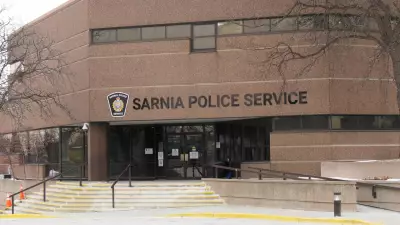
Federal Court Upholds Order for Full Food Aid Benefits
In a significant development during the ongoing U.S. government shutdown, a federal appeals court has declined to block a lower court's order that requires the Trump administration to fully fund food assistance benefits for 42 million low-income Americans this month. The Boston-based 1st U.S. Circuit Court of Appeals made its decision late on Sunday, November 10, allowing Judge John McConnell's ruling from Thursday to stand.
Legal Wrangling Creates Uncertainty for Food Assistance
The appellate court's decision, however, will not have an immediate effect due to an intervening order from U.S. Supreme Court Justice Ketanji Brown Jackson. On Friday, Justice Jackson placed a temporary 48-hour hold on Judge McConnell's ruling, which remains in place following the 1st Circuit's decision. This legal back-and-forth has created substantial uncertainty about the status of the country's primary anti-hunger program during the shutdown.
The administration had appealed the lower court decision, arguing that Judge McConnell could not force the USDA to find money beyond a contingency fund, which they compared to searching through "metaphorical couch cushions" for funding. They placed responsibility for resolving the crisis squarely on Congress.
On Saturday, the U.S. Department of Agriculture directed states to reverse any steps taken to issue full SNAP benefits before Justice Jackson's order, warning of potential financial penalties for non-compliance.
Judges Weigh Competing Priorities in Nutrition Assistance
In the appeals court ruling, U.S. Circuit Judge Julie Rikelman acknowledged the government's concern that money used for November SNAP payments might become unavailable for other nutrition programs. However, writing for the three-judge panel, she stated the court could not conclude that Judge McConnell had abused his discretion.
Judge Rikelman emphasized that a ruling favoring the administration would cause "widespread harm" by "leaving tens of millions of Americans without food as winter approaches." Like the other judges on the panel, she was appointed by a Democratic president.
The Supplemental Nutrition Assistance Program provides monthly benefits to Americans with incomes below 130% of the federal poverty line. Maximum benefits for the 2026 fiscal year are $298 for single-person households and $546 for two-person households, with the program costing between $8.5 billion and $9 billion monthly.
Originally, the administration planned to suspend SNAP benefits entirely in November due to funding shortages caused by the shutdown, which reached its 41st day on Monday. The legal battle emerged from a lawsuit filed by cities, nonprofits, a union, and a food retailer.
Judge McConnell had ruled that the administration must either use emergency funding for partial benefits or tap additional funding for full November benefits. When the USDA opted on November 3 to use only $4.65 billion in contingency funding, McConnell ordered the agency to access a $23.35 billion fund normally designated for child nutrition programs to provide the additional $4 billion needed for full benefits.
The White House and USDA did not immediately respond to requests for comment early Monday as the Senate moved forward on measures to reopen the federal government.





